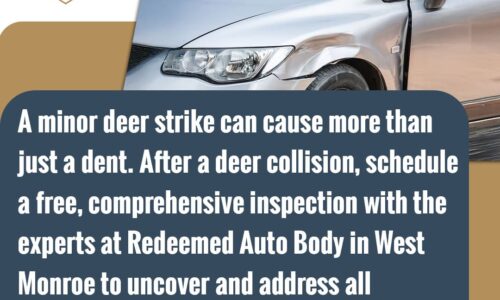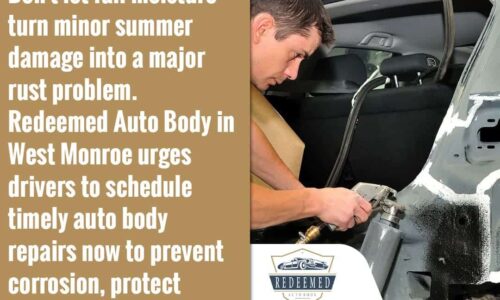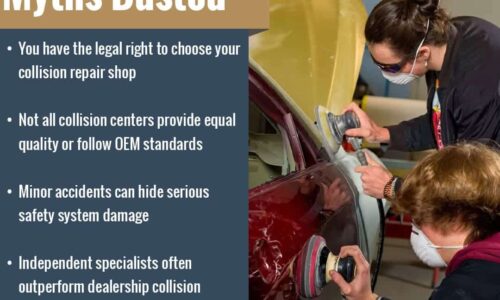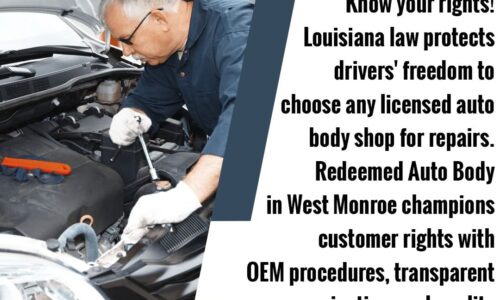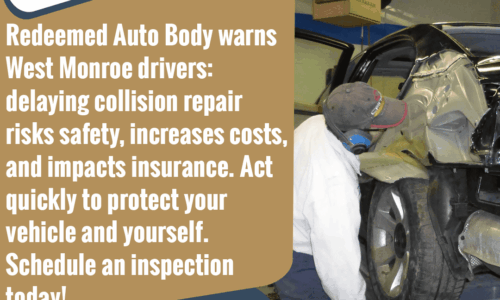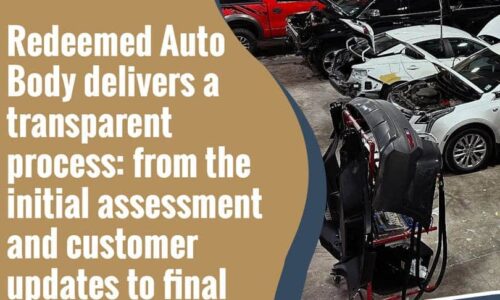Why Post-Accident Frame Inspections Are Essential for Safety
Synopsis Post‑accident frame inspections are critical because even minor collisions can shift structural points, weaken safety systems, and affect how your vehicle protects you in another crash. Redeemed Auto Body ...
How Louisiana’s Humid Weather Affects Your Vehicle’s Paint and Finish
Synopsis Louisiana’s humidity rapidly breaks down clear coat, accelerates rust, and weakens paint, making local vehicles especially vulnerable to hidden damage. Redeemed Auto Body in West Monroe, LA, explains how ...
Common Types of Collision Damage After Deer Season in Louisiana
Synopsis After Louisiana’s deer season, vehicle collisions surge, often causing hidden structural and electronic damage that compromises safety. Redeemed Auto Body in West Monroe uses OEM repair procedures, advanced diagnostics, ...
Preparing Your Car for Fall: Why Timely Auto Body Repairs Matter in West Monroe
Synopsis Louisiana’s fall weather magnifies hidden vehicle damage caused by summer heat and storms. Redeemed Auto Body in West Monroe, LA, emphasizes timely auto body repairs to prevent corrosion, protect ...
Collision Repair Misconceptions: What West Monroe Vehicle Owners Need to Know
Synopsis Collision repair myths often mislead vehicle owners into risky choices that affect safety, costs, and resale value. Redeemed Auto Body in West Monroe, LA, dispels these myths with proven ...
Your Right To Choose An Auto Body Shop in West Monroe, LA
Synopsis Louisiana law protects your right to choose where your car is repaired, yet insurers often pressure drivers toward preferred shops. At Redeemed Auto Body in West Monroe, LA, we ...
Risks of Delaying Collision Repair: What West Monroe Drivers Should Know
Synopsis Delaying collision repairs can compromise safety, increase repair costs, and lower your vehicle’s value, especially in West Monroe’s harsh climate. Redeemed Auto Body identifies and fixes hidden damage using ...
Independent Auto Body Shops vs. Insurance DRP Shops
Synopsis Redeemed Auto Body in West Monroe, LA, explains the crucial differences between independent auto body shops and insurance DRP facilities, focusing on parts quality, repair procedures, safety, and customer ...
Insurance Claim Process – Help From A Collision Center
Synopsis Handling an auto insurance claim can be confusing, but the right collision center can make all the difference. Redeemed Auto Body in West Monroe, LA, helps drivers every step ...

